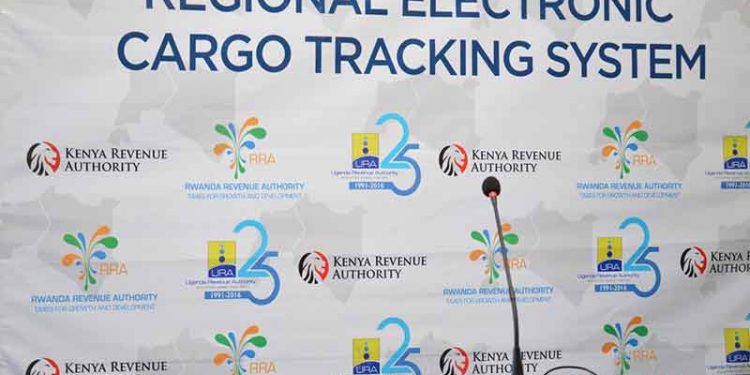In order to mitigate risks associated with movement of transit cargo, the LAPSSET corridor route has been on-boarded into the Regional Electronic Cargo Tracking System (RECTS), to monitor transit cargo to Ethiopia and South Sudan.
The introduction of the RECTS has reduced cargo transit from Mombasa port to Kampala to an average of 3.7 days and eliminated dumping of transit cargo by 97%, according to Kenya Revenue Authority (KRA).
RECTS is an initiative of the KRA in partnership with the revenue administrations of the partner states of Uganda and Rwanda that seeks in the mid-term, to rope in all EAC states and outlying countries in the region.
The system enables real time tracking of transit cargo from the port of Mombasa to its destination through an online digital platform.
KRA’s decision to implement a cargo tracking and security system was in response to the government’s interest in improving tax collection, enhancing enforcement of cargo handling regulations and maintaining Kenya as a preferred trade route for cargo in East Africa.
These initiatives were critical to support national initiatives aimed at promoting trade within the region. Its precursor, the Electronic Cargo Tracking System (ECTS) which was managed by private sector vendors did not achieve the desired outcome and was therefore phased out.
RECTS comprises satellites, a monitoring center and special electronic seals fitted on cargo containers and trucks which give precise location of goods at any time.
RECTS covers trade routes that extend from the port of Mombasa to the Free Zones within Kenya, and from the port via the country’s main transportation trade routes to the neighboring landlocked countries including Uganda and Rwanda.
The introduction of RECTS was in the backdrop of rampant illegal dumping. Dumping occurs when goods consigned to a destination in another customs jurisdiction are unprocedurally offloaded while in transit. Not only does such action result in unfair trade practice, but also in major duty and tax losses.
The introduction of such modern systems in customs management, is in line with the overall country objective which is to align itself with universal industry best practice in facilitating fair and secure trade environment, while enhancing KRA’s capacity to assure revenue collection and enforce regulations that have significant positive impact on the country’s economic development.





